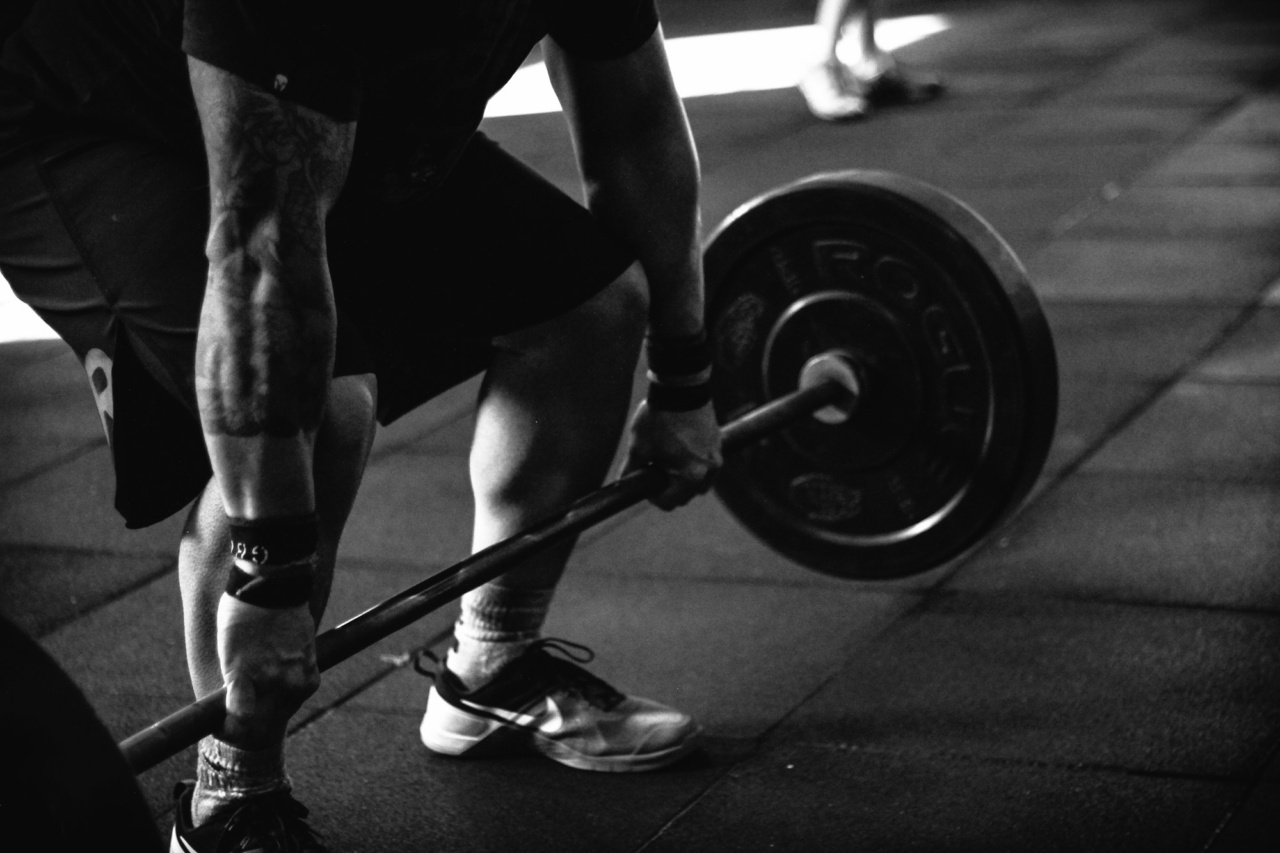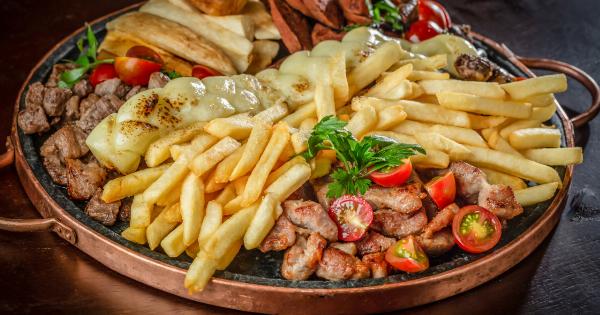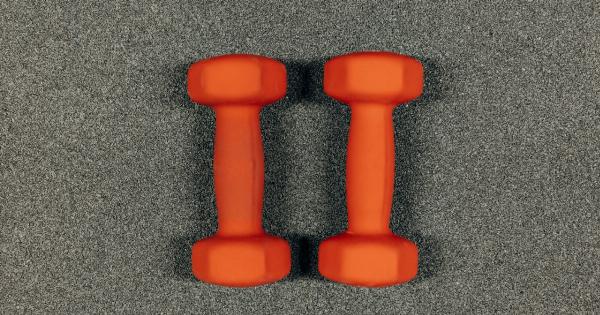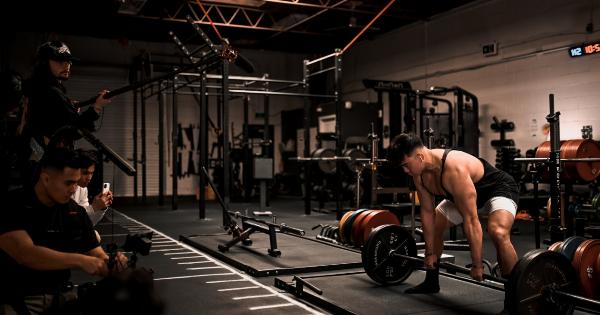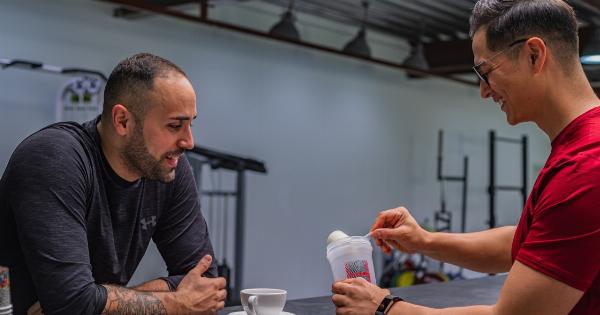When it comes to building muscles, one of the essential macronutrients, protein, can play a key role. Research shows that protein can help maximize muscle gains when coupled with regular exercise, especially strength training.
Protein helps your body repair and rebuild muscle tissues, not only making them stronger but also preventing muscle loss. Additionally, protein can boost your metabolism, which can help increase your muscle mass while helping you burn fat.
In this article, we’ll explore how much protein you need, the best sources of protein, and how to maximize your muscle gains with protein intake.
How Much Protein Do You Need?
The amount of protein you need can depend on several factors such as your age, gender, weight, and activity level.
However, the popular and scientifically supported guideline is consuming 0.8 grams of protein per kilogram of body weight per day (or 0.36 grams per pound). For example, if you weigh 150 pounds, you would need to consume 54 grams of protein per day (150 x 0.36 = 54).
But this guideline may not be enough if you’re actively building muscle.
According to the ISSN (International Society of Sports Nutrition), athletes or people engaging in strength training should consume up to 2.2 grams per kilogram of body weight, or 1 gram per pound of body weight, depending on their training goals. In some instances, you may even need to consume more than that.
It’s also essential to note that your protein needs may increase as you age. The National Institute of Health recommends that older adults consume 1 to 1.2 grams of protein per kilogram of body weight daily to help slow down muscle loss.
The Best Sources of Protein
When you think of protein, you probably think of meat products. While meat is indeed a good source of protein, it’s not the only one.
If you’re a vegetarian or vegan, or just don’t eat meat, there are still plenty of protein-rich foods to choose from. Here are some of the best sources of protein:.
Meat
Meat is the best source of complete protein that contains all the essential amino acids your body needs. The most protein-rich meats include:.
- Beef: 23 grams of protein per 85 grams of cooked beef.
- Chicken: 32 grams of protein per 85 grams of cooked chicken breast.
- Pork: 26 grams of protein per 85 grams of cooked pork loin.
Fish and Seafood
Fish and seafood are excellent sources of protein, and some are also rich in omega-3 fatty acids. Eating fish can help reduce inflammation, improve heart health, and lower the risk of chronic diseases. The most protein-rich fish and seafood include:.
- Tuna: 25 grams of protein per 85 grams of canned tuna.
- Sockeye salmon: 23 grams of protein per 85 grams of cooked salmon.
- Shrimp: 24 grams of protein per 85 grams of cooked shrimp.
Eggs and Dairy
Eggs and dairy products are a great source of protein and also contain other essential nutrients such as vitamin D and calcium. However, they may not be the best option for people with lactose intolerance or egg allergies.
The most protein-rich eggs and dairy products include:.
- Eggs: 6 grams of protein per large egg.
- Greek yogurt: 17 grams of protein per 170 grams of Greek yogurt.
- Cottage cheese: 14 grams of protein per 113 grams of cottage cheese.
Vegan and Vegetarian Options
If you don’t eat meat or animal products, you can still get enough protein from plant-based foods. However, plant-based sources of protein are usually incomplete and may not contain all the essential amino acids your body needs.
So it’s important to combine different protein-rich plant foods to create complete protein sources. The best sources of vegan and vegetarian protein include:.
- Lentils: 18 grams of protein per cooked cup of lentils.
- Chickpeas: 15 grams of protein per cooked cup of chickpeas.
- Tofu: 10 grams of protein per 85 grams of tofu.
How to Maximize Your Muscle Gains with Protein Intake
Now that you know how much protein you need and the best sources of protein let’s talk about how to optimize your protein intake for maximum muscle gains.
Timing is Everything
Consuming protein at the right time is crucial for muscle building. Research shows that consuming protein shortly after exercise can help promote muscle protein synthesis, which is the process of creating new muscle proteins.
When your muscles go through exercise, they experience micro-tears, and consuming protein can help repair and rebuild these damaged tissues. Aim to consume protein within 1 hour of completing your workout for optimal muscle gains.
Spread out Your Protein Intake
While consuming protein immediately after exercise is essential, you also want to make sure you’re consuming enough protein throughout the day.
Spreading out your protein intake evenly across meals can help your body continually repair and build new muscle tissues. Aim to consume at least 20 grams of protein per meal, and consider consuming a high-protein snack between meals.
Diversify Your Protein Sources
While we’ve listed some of the best sources of protein above, you don’t want to eat the same protein sources every day.
Diversifying your protein sources can help ensure you’re consuming all the necessary amino acids your body needs to build muscle. Additionally, consuming different protein sources can keep your meals interesting and varied, which can help you stick to your nutrition goals.
Conclusion
Protein is essential for maximizing muscle gains. While you don’t need to be obsessing over your daily protein intake, aim to consume enough protein consistently to support your strength training goals.
Whether you prefer animal, plant-based, or a combination of foods, make sure you’re diversifying your protein sources and consuming protein within one hour after your workout for optimal muscle gains. With these tips, you’ll be well on your way to reaching your muscle-building goals.
